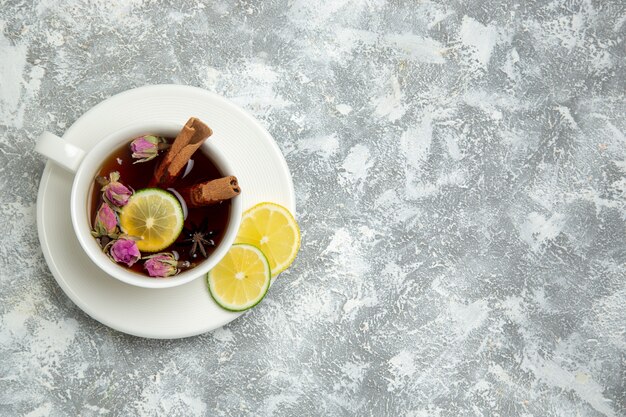
My post explaining why I don’t lower fevers (and what I do instead) has become really popular, and I can see why! All parents have faced sleepless nights worried about a child with a high fever. Thankfully, fevers aren’t as dangerous as many people think, and relief might just be a cup of herbal tea away.
Though research overwhelmingly shows that fevers are protective and rarely life-threatening, dealing with one isn’t pleasant. Most people instinctively reach for Advil or Tylenol to quickly ease the discomfort, but these can actually prolong illness by interfering with the body’s natural defenses. Plus, frequent use can have some risky side effects.
I’m a mom, not a doctor, but you should know the rare warning signs when a fever needs emergency care. For most cases, though, herbal tea offers a safe, natural remedy.
Teas are great for harnessing the healing benefits of herbs. When you steep herbs, their vitamins, minerals, and antioxidants become more accessible. Plus, herbal tea is quick to make and even kids enjoy it.
Interestingly, while herbal tea looks and smells like traditional tea, it doesn’t actually come from the Camellia sinensis plant, which is where black, green, and oolong teas originate. Herbal tea, or tisane, is made by brewing leaves, roots, seeds, or bark from certain plants that have medicinal properties and have been used for health-boosting purposes for a long time.
If you’re like me and love tea (and coffee), you probably already have some of the best herbs for tackling fevers, colds, and the flu handy.
So, how can a cup of herbal tea help where pain relievers fall short? Here are some research-backed reasons to reach for herbal tea the next time you or your child is under the weather:
While feeling chilled and achy often signals the start of an illness, fever is actually a natural response. It raises body temperature, making it harder for bacteria and viruses to thrive. A warming herbal tea can aid this by further increasing body temperature through certain herbs that improve circulation. This helps white blood cells reach their targets faster, aiding in the fight against infections.
Some stimulating herbs particularly good for fevers include:
These herbs, commonly used in cooking, are known for their strong fragrance and taste, indicating their stimulating effects.
When the body’s temperature rises with a fever, the skin’s pores open to release sweat. This process cools the body and detoxifies it by flushing out toxins. Fragrant herbs like yarrow, thyme, bee balm, and ginger can support this natural healing process, especially when consumed as a tea infusion.
It’s not the fever you should fear, but dehydration.
Staying hydrated is always crucial, even more so when you’re sick. Ensuring a child stays hydrated during a fever is essential. Bone broth, plain water, or homemade electrolyte drinks are excellent options, but herbal tea offers added benefits.
We all want our kids to feel comfortable when they’re sick. A warm cup of tea not only smells great but also provides real pain relief. Non-steroidal anti-inflammatory drugs (NSAIDs) work by reducing inflammation, the cause of pain. Similarly, certain herbal teas offer the same pain-relieving and anti-inflammatory benefits without the risk of long-term complications.
For instance, peppermint contains menthol, which is a known muscle relaxant great for easing fever-related aches. Research shows turmeric, white willow bark, cat’s claw, and even true green tea are effective pain relievers, and powdered ginger can match the pain-relieving properties of ibuprofen!
Some herbal teas also help relieve symptoms like congestion, sinus pressure, headaches, digestive issues, and other discomforts associated with fevers. You can customize herbal blends to suit various needs.
Herbs such as chamomile and mint provide various nutritional benefits, including being high in absorbable calcium, magnesium, iron, zinc, and copper. Just like bone broth, the body can easily digest and absorb the goodness from herbs prepared as tea, which usually needs to steep for 20-30 minutes. Chamomile, in particular, is beneficial for fevers and has a naturally mild, sweet, apple-like flavor that kids love. I often keep chamomile tincture handy, which can easily be added to teas.
Remember that the nutritional value of herbs varies, so choose organic herbs from reputable sources.
Despite all the great teas and supplements, nothing beats sleep for boosting the immune system, especially when down with a fever. Getting kids to sleep can be tough, but it might be easier when they’re not feeling well.
Herbs like yarrow, catnip, mint, and chamomile are not only fever reducers but also promote good sleep. I use them in my Sweet Dreams Sleep Tincture, and they make a great tea blend. There are also several good sleepytime teas available. Again, choosing a good brand is important.
With so many options discussed above, here’s a simple way to start building an herbal collection from trusted sources. You might even already have these teas in your cupboard!
If you’re unsure how to make herbal tea properly, there’s a fantastic guide on how to prepare the perfect cup every time.
Elderberry Tea – Cinnamon and turmeric are warming, stimulating herbs that, when combined with elderberries, create a simple yet powerful herbal tea.
10 Health-Boosting Herbal Teas – These are the herbs I like to stock up on for tea and tinctures to support sleep and immunity.
While I’m not a doctor, based on my research, I seek medical help for a fever in specific situations.
Do you use herbal teas when you or your kids have a fever? If so, what’s your go-to tea? Share your tips with me in the comments!

